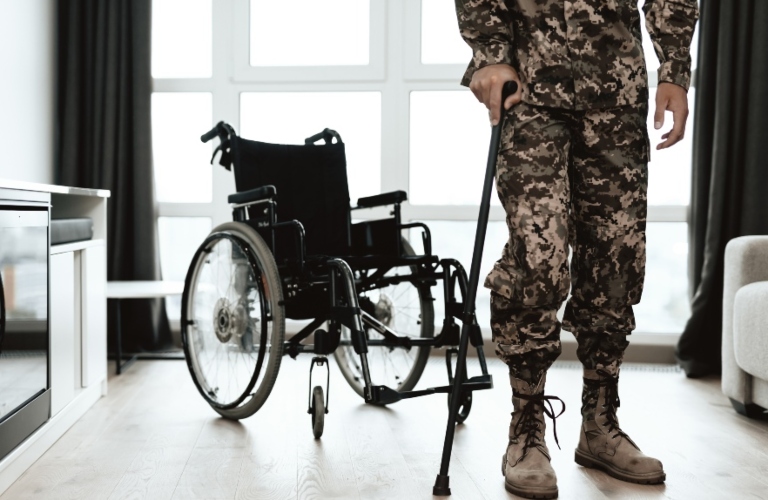
Understanding the VA Disability Compensation Rates for 2025
The Department of Veterans Affairs adjusts disability benefits annually to reflect current economic conditions. Towards the end of each year, the VA announces the benefit rates that will go into effect for the following year.
The 2025 Cost of Living Adjustment (COLA)
The VA applies the same Cost of Living Adjustment to VA disability benefits that the Social Security Administration uses for Social Security disability and retirement benefits. For 2025, the Social Security Administration announced a 2.5 percent COLA to benefits. The Social Security Administration calculates annual COLAs based on the Consumer Price Index for Urban Wage Earners and Clerical Workers (CPI-W), published by the U.S. Bureau of Labor Statistics. The CPI-W measures the change in consumer prices for specific categories of workers.
Monthly Compensation Rates Based on Disability Rating
Monthly disability benefits for 2025 for each disability rating include:
- 10 percent disability rating: $175.51 (up from $171.23 in 2024)
- 20 percent disability rating: $346.95 (up from $33849 in 2024)
- 30 percent disability rating: $537.42 (up from $524.31 in 2024)
- 40 percent disability rating: $774.16 (up from $755.28 in 2024)
- 50 percent disability rating: $1,102.04 (up from $1,075.16 in 2024)
- 60 percent disability rating: $1,395.93 (up from $1,361.88 in 2024)
- 70 percent disability rating: $1,759.18 (up from $1,716.28 in 2024)
- 80 percent disability rating: $2,044.89 (up from $1,995.01 in 2024)
- 90 percent disability rating: $2,297.96 (up from $2,241.91 in 2024)
- 100 percent disability rating: $3,831.30 (up from $3,737.85 in 2024)
Additional Compensation for Dependents
The VA pays higher disability compensation rates to veterans with a disability rating of 30 percent or higher who have a dependent spouse, child, or parent(s). Veterans also earn additional benefits for each additional dependent child (a child under 18 or a child over 18 in a qualifying school program. Veterans may also receive additional benefits if their spouse provides aid and attendance.
Special Monthly Compensation
The VA also offers special monthly compensation to qualifying veterans or their spouses, surviving spouses, or parents with qualifying needs or disabilities. VA special monthly compensation (SMC) provides a higher compensation rate than standard VA disability benefits. For example, a veteran may receive up to three SMC-K awards, which provide an additional rate on top of a veteran’s basic disability compensation and most other SMC benefits. Veterans may receive SMC benefits for specific injuries/disabilities, such as amputations, loss of the use of extremities, loss of eyes, or loss of vision/hearing, or if a veteran requires daily help for basic needs or cannot leave their home due to service-connected disabilities.
Special Benefit Allowances

The VA offers qualifying veterans various special benefit allowances, such as:
- Automobile allowances toward the purchase of a specialty for veterans with service-connected disabilities that prevent them from driving
- Clothing allowances for veterans with a service-connected disability that requires a skin medicine, prosthetic, or orthopedic device that damages clothing
- Monthly pensions to Medal of Honor recipients
Dependency and Indemnity Compensation (DIC) Rates
A surviving spouse, child, or parent of a veteran who died in the line of duty or died due to a service-connected medical condition may qualify for a tax-free financial benefit called Dependency and Indemnity Compensation. A spouse can qualify for DIC if they lived with the veteran without separation until their death or if the spouse was not at fault for any separation and meets one of the following criteria:
- They married the veteran within 15 years of their discharge from the period of military service that caused or worsened the veteran’s qualifying injury/illness
- They were married to the veteran for at least one year
- They had a child with the veteran
Spouses can continue to receive DIC benefits if they remarry after turning 55.
Children can qualify for DIC benefits if they:
- Are not married
- Are not included in the veteran’s surviving spouse’s compensation
- Are under 18 (or under 23 while attending a qualifying educational program)
Parents can qualify for DIC benefits if they earn income below a certain threshold.
Contact a VA Disability Lawyer Today
Contact a VA disability attorney at Veteran Benefits Law Group today for a free, no-obligation consultation to learn more about how the 2025 Cost of Living Adjustment may affect your VA disability benefits.
Share This Story
Interested in this topic? Your friends might be too! Consider sharing this story to your social media channels and look like a smart, sophisticated resource of information.

